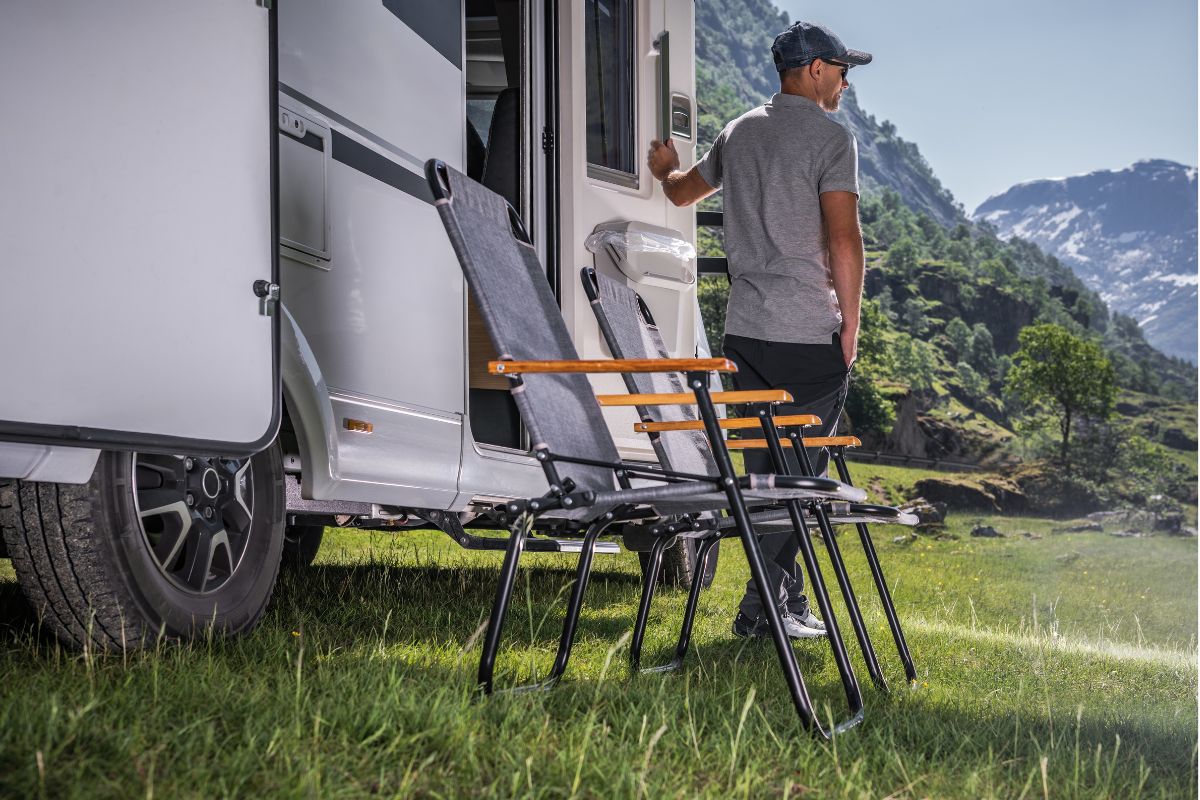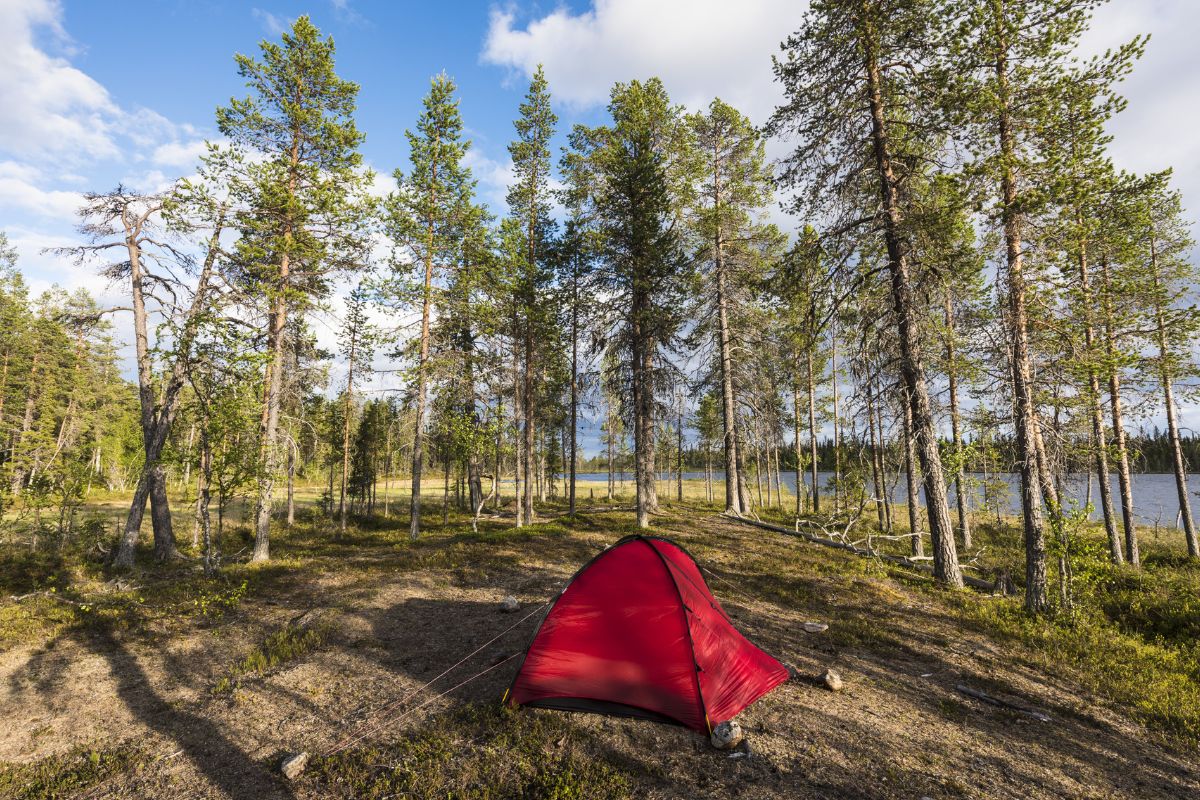Wild camping: camping freely in the wild
30 January, 2025
Wild camping is camping outside of a campsite. It’s by far the most adventurous way to discover places that are off the beaten path. In nature, you are entirely reliant on yourself and can go wherever you want. You won’t find a greater sense of freedom, but you must not mind minimal comfort. We have compiled a list of where wild camping is allowed in Europe. We also give some helpful tips to sleep under the stars with peace of mind.
Table of Contents:
- Wild Camping in Europe: Each country has its own wild camping rules
- Wild Camping in France
- Tips for Wild Camping
- Where You Can’t Wild Camp
- Post Camping in the Netherlands
Wild Camping in Europe: Each country has its own rules
In some places in Europe, wild camping is allowed. You have the best chances in sparsely populated areas with vast nature, such as Sweden, Norway, and Finland. In these Scandinavian countries, they have the right to roam. This means you can camp anywhere, as long as you follow basic guidelines, like not camping within 150 meters of a house.
Scotland is not only a beautiful destination but also an ideal country for wild camping. In 2003, they introduced the right to roam, which means you can camp anywhere. However, you will need permission from the landowner. In a vast environment, it’s sometimes unclear where to find the owner. The best option is to walk to a nearby house (if there is one) and explain your plan. Often, the responses are positive. In mountainous Switzerland, you can look higher up, as you are only allowed to pitch your tent above the tree line. Additionally, your campsite must be out of sight from any mountain huts.

Wild Camping in France
For the Francophiles among us, you’re in luck. Although the French have regulations regarding overnight stays in the wild, wild camping is quite possible in France. You are allowed to park your camper or car with a caravan on any parking lot between 7 PM and 9 AM. However, your camper must not weigh more than 3,500 kg. For tents, you need to find a spot that is at least one hour’s walk away from the road. In addition, you will need permission from the landowner or the police to camp in the wild. In most national parks, wild camping is not allowed.
Tips for Wild Camping
Anyone can wild camp! With a bit of common sense and an adventurous spirit, you’re in for an unforgettable experience.
- Download the free app Hulp op Zak. If you find yourself in a tricky situation, you can call for help with a press of a button. If the situation is less urgent, you can also send your location to people back home via the app. After all, you never know where you might end up. Even without an internet connection, you can rely on this digital assistant.
- Respect nature and carefully consider whether you might unintentionally cause harm to the environment where you are staying. For instance, lighting a fire during dry weather is strongly discouraged. Sustainable camping is the way to go.
- Bring enough drinking water. While you may come across a water pump at your campsite, you cannot drink that water directly. It’s important to boil it first.
- If dusk falls and you haven’t found a suitable place to camp in the wild, don’t worry. If you download a handy camping app before departure, you can easily find a campsite nearby. In the ACSI app, you can filter for eco-campsites.
- Looking for inspiration? The best camping spots can be found here.
Where You Can’t Wild Camp
Some countries are strict but clear. Wild camping is officially banned there. This includes the Netherlands, Belgium, Germany, Luxembourg, Austria, England, Ireland, Italy, Spain, Portugal, Slovenia, Greece, Bulgaria, Croatia, and Bulgaria. Some countries make exceptions when camping on private land, like in England, Spain, and Italy. In these countries, you are allowed to camp with permission from the landowner. In Portugal, exceptions apply outside tourist areas in some cases.
Would you still like to camp in these destinations? Luckily, there are plenty of lovely small-scale campsites where you can camp right in the heart of nature. And here, you can enjoy a nice hot shower after a day in the outdoors. A smart plan, because if you do decide to wild camp in countries where it’s prohibited, you might find yourself facing a hefty fine from the forest ranger or police.

Post Camping in the Netherlands
Never heard of post camping? Although you can’t wild camp in the Netherlands, there are still opportunities for true adventurers. Staatsbosbeheer has designated a few small places in the forests where you can camp for free with your tent. After 72 hours, you need to leave. These spots are marked with a post, which is why they have this unique name. Belgium has a similar system, where these spots in the wild are called bivak zones.


Latest comments